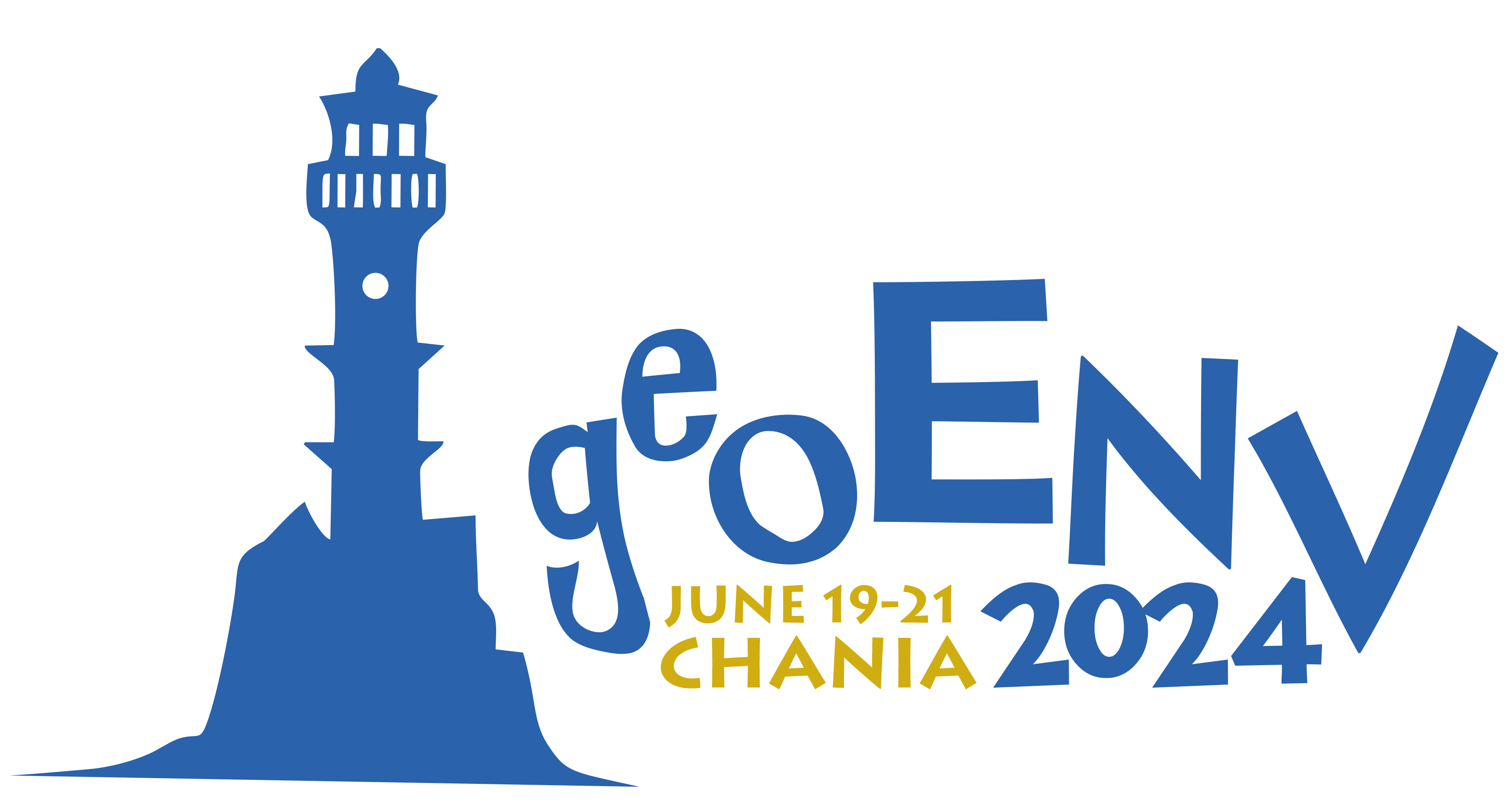Four short courses will be held during the geoENV2024 conference on the 18th and 21st of June by well-recognized academics in the field:
Short Course 1
What Kalman could not anticipate
Friday June 21st: 09.30-12.30
(Registration Code: S1 Kalman)
Rudolf E. Kálmán formulated the Kalman filter in the 1960s, and his filter was quite a success and used, among others, during the Apollo program. However,
it was based on a linear state space model and could not find an application outside the realm of linear systems despite the efforts to find formulations, like the extended Kalman filter, aimed at handling non-linearities. Until computers became more powerful and Evensen proposed the ensemble Kalman filter to circumvent the pitfalls of previous formulations. And then Emerick proposed
the ensemble smoother with multiple data assimilation focusing on the solution of inverse problems for highly non-linear systems. This short course will work through the different filters and discuss their potential for data assimilation and inverse modeling with hands-on examples using open-source software.
Short course fee: 50€ (paid with the registration fee)
| Registration open! (Participants, please send your full name and short course preference to the following email address: geoenv2024@tuc.gr) |
Short Course 2
Practical multiple point statistics workshop in python
Tuesday June 18th: 09.30-12.30 and 14.00-17.00
(Registration Code: S2 MP Statistics)
Multiple point statistics (MPS) is a simulation technique that learn patterns from training data. It allows quantifying uncertainty when complex asymmetric, highly connected, or curvilinear spatial and temporal structures are expected to play a key role in predictions. In this course, we will focus on the Direct Sampling method since it offers the greatest flexibility in terms of types of training data that can be used (categorical, continuous, multivariate) and in terms of conditioning to direct or indirect measurements. The course will provide an introduction to the fundamental concepts of the Direct sampling approach as well as a tutorial on how to use the method in python for a diverse set of environmental applications.
Short course fee: 50€ (paid with the registration fee)
| Registration open! (Participants, please send your full name and short course preference to the following email address: geoenv2024@tuc.gr) |
Short Course 3
Uncertainty quantification in the predictions of an infectious disease outbreak using Bayesian data assimilation
Thursday, June 20th: 09.30-12.30
(Registration Code: S3 Epidemiology)
Predicting the transmission dynamics of an infectious disease using mathematical models is challenging and comes with a lot of uncertainty. The goal of this workshop is to quantify this uncertainty and provide insight that would support public health officials towards informed, data-driven decision making. The course will be based on our real-world experience of tracking the spatial spread of measles, COVID-19 and Ebola.
By the end of the workshop participants will be able to:
- know how to build a compartment model of epidemiology (for ex: SIR, SEIR, SVEIRD etc.) to track the spread of infectious diseases.
- adopt the two basic ingredients for spatiotemporal tracking of infectious diseases via Bayesian data assimilation methods; (1) a mathematical model (to reproduce the process of interest) (2) incorporate observations (incidence, prevalence, recovery, and death data) to update epidemic state estimates.
A comparison between observed data and the compartment model coupled with data assimilation highlights the role of a realization conditioned on all prior data and newly arrived data.
Short course fee: 50€ (paid with the registration fee)
| Registration open! (Participants, please send your full name and short course preference to the following email address: geoenv2024@tuc.gr) |
Short Course 4
Spatial Data Science with R
Tuesday June 18th: 09.30-12.30
(Registration Code: S4 Spatial data)
Spatial data arise in many fields including health, ecology and the environment. In this course, we will learn statistical methods, modeling approaches, and visualization techniques to analyze spatial data using R. We will work through several fully reproducible data science examples using real-world data such as air pollution prediction and disease risk mapping. We will cover the following topics:
- Spatial data including areal, geostatistical and point patterns.
- R packages for retrieval, manipulation and visualization of spatial data.
- Fitting and interpreting Bayesian spatial models using the integrated nested Laplace approximation (INLA) and stochastic partial differential equation (SPDE) approaches.
The course materials are based on the books “Spatial Statistics for Data Science: Theory and Practice with R” (https://www.paulamoraga.com/book-spatial/) and “Geospatial Health Data: Modeling and Visualization with R-INLA and Shiny” (https://paula-moraga.github.io/book-geospatial/).
Prerequisites: It is assumed participants are familiar with R and it is recommended a working knowledge of generalized linear models. Participants should bring their laptops with R and RStudio installed.
Short course fee: 50€ (paid with the registration fee)
| Registration open! (Participants, please send your full name and short course preference to the following email address: geoenv2024@tuc.gr) |
